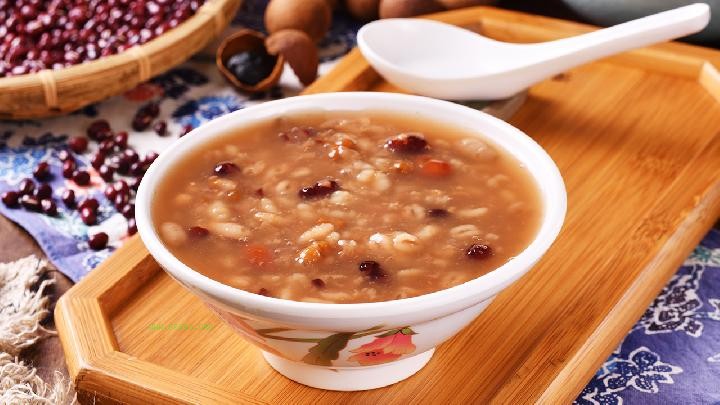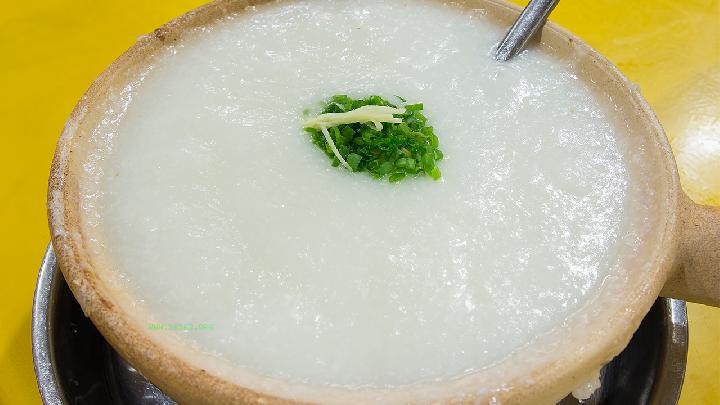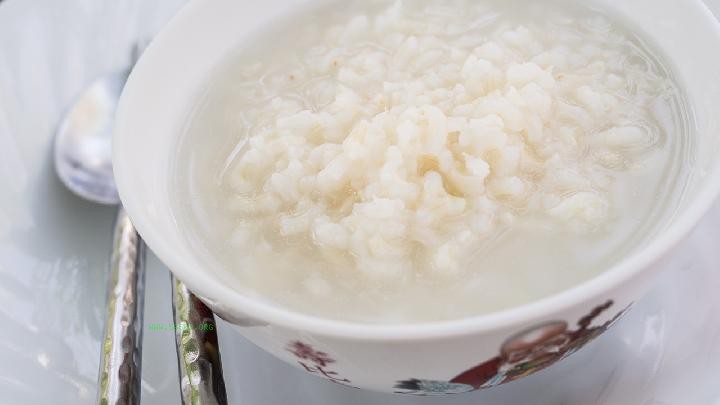Many people believe that drinking Congee can nourish the stomach. When the stomach is uncomfortable, they will cook a pot of white porridge to eat. In fact, if the method of drinking Congee is not correct, it will not nourish the stomach, but will hurt the stomach. What's wrong with drinking Congee to nourish the stomach?
Four misunderstandings of Congee to nourish the stomach
Does Congee really nourish the stomach? not always! Here are some common misconceptions about drinking Congee to nourish the stomach:
misconception 1: everyone is suitable for drinking Congee
In fact, not everyone is suitable for drinking Congee. Among them, people with too much stomach acid should not drink Congee.
Because drinking Congee will stimulate the stomach to secrete more stomach acid, if people with too much stomach acid often drink Congee, it may increase the damage to the stomach, even acid regurgitation, and increase the burden on the stomach.
For patients with gastroesophageal reflux, too much stomach acid will increase the damage to the esophagus, so they cannot often drink Congee; For gastric patients in the healing period of peptic ulcer, too much gastric acid is not conducive to ulcer healing, so they cannot drink Congee for a long time.
Myth 2: Drinking iced porridge in summer
Many people do it in summer by putting the cooked Congee in the freezer and eating it when it's cold. However, although ice porridge is delicious, it is not suitable for the weak elderly, children and people with cold physique. Drinking too much ice porridge can not nourish the stomach, but may also affect the gastrointestinal function.
Myth 3: Congee cooked with leftovers
If the leftovers of the day are not enough, many people will cook them into Congee the next day in order not to waste them. Although this practice is advisable, if you do not pay attention to cooking leftovers thoroughly, Congee will be a bit "hard". If people with less gastric acid secretion eat the "leftovers Congee" that cannot be cooked thoroughly, it may lead to aggravation of dyspepsia.
Misconception 4: Drinking porridge every day
In the past, it was advocated that patients with stomach diseases mainly eat porridge as their diet. In fact, porridge is swallowed without chewing, without sufficient mixing with saliva, and cannot be initially digested by amylase in saliva. At the same time, porridge contains a lot of water, which dilutes gastric juice when it enters the stomach. These are the reasons why porridge is difficult to digest; In addition, drinking porridge increases the capacity of the stomach and provides less heat, which not only increases the burden on the stomach to a certain extent, but also results in relatively insufficient nutrition. So patients with stomach diseases should not drink porridge every day. As long as they chew dry rice slowly, it is not only harmless to the stomach but also promotes digestion, which is beneficial to health.
These stomach nourishing misconceptions also need to be alert
In addition to the above-mentioned Congee stomach nourishing misconceptions, some other stomach nourishing misconceptions also need to be noted, such as drinking milk to cure stomach disease, eating soda biscuits to relieve stomach acid, etc..
Misconception: Patients with stomach diseases should eat less and eat more.
Many people advise patients with stomach ulcers to "eat less and eat more". However, new research suggests that food entering the stomach itself is a stimulus to the gastric mucosa, which not only accelerates gastrointestinal peristalsis but also increases the secretion of gastric acid and pepsin, which is not beneficial for the healing of ulcer disease. At present, it is advocated that ulcer patients pay attention to regular and quantitative diet, avoiding hunger and overeating.
Misconception: Milk can cure stomach diseases
The traditional belief is that milk can neutralize stomach acid and help with the recovery of peptic ulcers. The latest research shows that milk can promote gastric acid secretion. There are reports that after drinking milk, stomach acid secretion increases by 30%. Therefore, patients with peptic ulcers and those who experience diarrhea after drinking milk should not drink milk. Yogurt contains a high amount of lactase, which is easily digested and absorbed, and has no adverse reactions to peptic ulcers. Misconception: Long term consumption of soda crackers for stomach acid
Misconception: Long term consumption of soda crackers for stomach acid
When we have stomach acid, we often think of eating some soda crackers to neutralize it. Eating a small amount of soda crackers and soda water with excessive stomach acid is indeed beneficial. But many friends who do not like sweets but value health care, long-term consumption of alkaline foods such as soda crackers can neutralize stomach acid and increase the pH value of the stomach, which can actually have the opposite effect. Because our stomach itself is an acidic environment that ranges from slightly acidic to strongly acidic, it can reduce bacterial infections in the stomach. As the stomach acid decreases, digestive capacity decreases, and bacteria increase, it is more likely to develop gastritis, which in turn increases the risk of gastric cancer.
Mistake: Drinking tea does not hurt the stomach
In addition to drinking Congee, we Chinese also like drinking tea. Especially for some middle-aged and older men, they are particularly fond of tea. I often drink green tea, oolong tea, and Tie Guan Yin tea. Green tea is not fermented, while oolong tea and Tie Guan Yin are fermented ripe teas.
We often hear that drinking green tea is good for the body. Indeed, the tea polyphenols in green tea are beneficial to the human body, but it is still clear that excessive consumption can stimulate the gastric mucosa. Compared to ripe tea, ripe tea has relatively less stimulation on the stomach. Therefore, it is recommended that you do not drink tea on an empty stomach and do not drink a large amount of strong tea. Make a cup of tea, with no more than 2 grams of tea leaves. Drinking tea correctly is good for the body. Good stomach is good for good health, everyone should be careful of these stomach nourishing misconceptions!
Good stomach is good for good health, everyone should be careful of these stomach nourishing misconceptions!




Comments (0)
Leave a Comment
No comments yet
Be the first to share your thoughts!